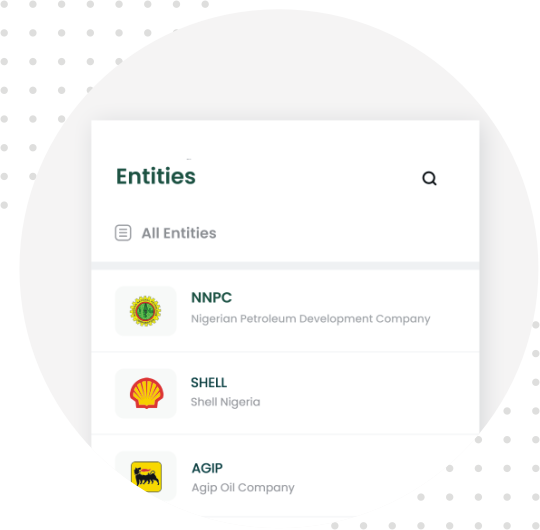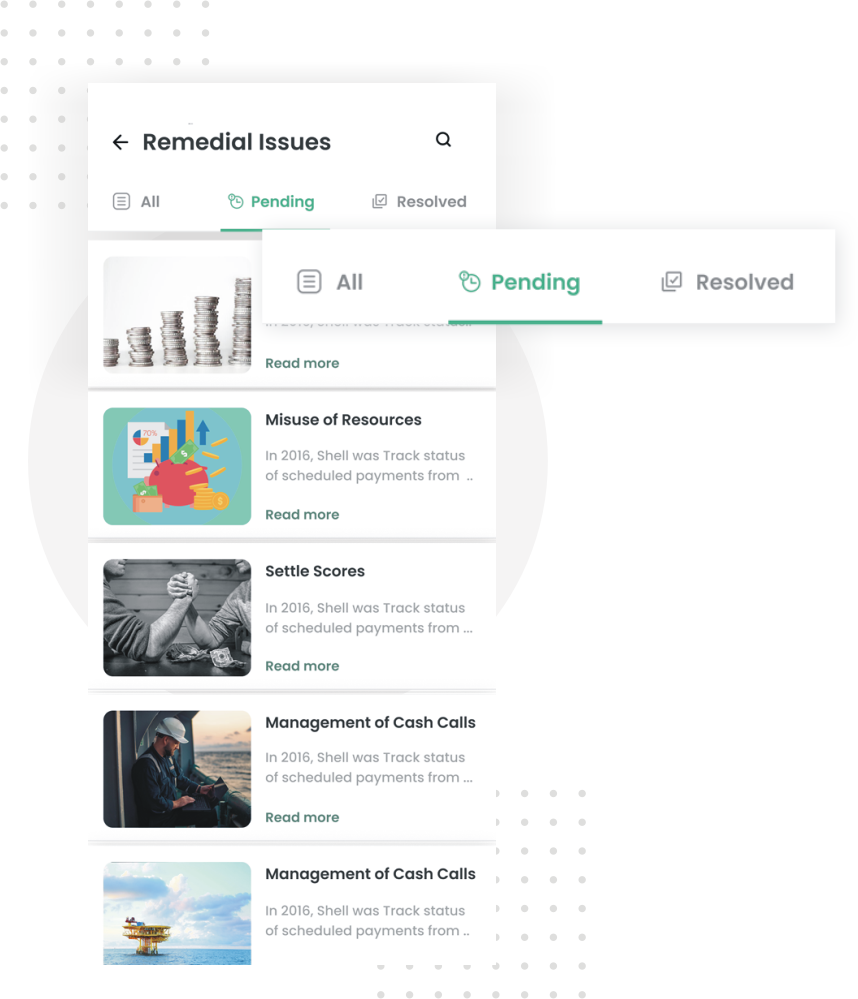
Track remediations.
Track and ensure accountability of extractive industries in Nigeria. Follow up on remedial issues that have been resolved or pending resolution. Track host comm intervention in your community, view and comment on issues in your state or local government. View and follow up on CSR projects in your community or state.
TrackProviding evidence-based advocacy.
RemTrack is a civic technology-for-development tool designed and deployed by OrderPaper to unpack the complex web of remediation in NEITI audit reports into user-friendly information and datasets that enable stakeholders, especially civil society and the media to track progress and make evidence-based advocacy in furtherance of transparency and accountability in the extractive sector of Nigeria.
Data contained on this platform is sourced from NEITI audit reports.


About Remediation
Remediation is the process of reconciling the identified gaps and shortfalls in NEITI audit reports so as to ensure transparency and accountability in payments and receipts as well as adherence to accurate procedures and best practices in the oil, gas and solid minerals industries.
The idea is to fix the leakages and prevent reoccurrence in the future. NEITI audit reports clearly point out remediation issues via recommendations that impact on policies, and operational procedures that address corruption in the extractive sector if adequately implemented.
The reports examine physical, financial, process audits of the oil and gas sector and reconcile the monies the extractives companies pay to the government with what government declares it receives.
NEITI, Remediation AND Legislative Oversight
The Nigeria Extractive Industries Transparency Initiative (NEITI) is required to statutorily submit its audit reports to the National Assembly which is constitutionally empowered with oversight functions in a democracy. Therefore, the ultimate responsibility for remediation in this sense anchors with the federal legislature that has several standing committees and some ad-hoc panels charged with the mandate of providing oversight in the extractives sector. The RemTrack initiative is accordingly designed to aid the discharge of the dissemination function of NEITI; upscale advocacy efforts of civil society and other demand-side actors; and facilitate the performance of legislative oversight by the National Assembly.
Track RemediationsAbout NEITI
The Nigeria Extractive Industries Transparency Initiative (NEITI) was established by an Act of the National Assembly in 2007. This was after Nigeria voluntarily signed up to the Extractive Industries Transparency Initiative (EITI) four years earlier in 2003. The mandate of NEITI is to "ensure due process, transparency, accountability and zero corruption in the determination, payments, and receipts of all government revenue accruing from the extractives sector, and in the application of the resources for national development ." NEITI seeks to achieve its mandate via three key means, viz: Reporting, Dissemination, and Remediation. The organization undertakes regular audits of the Nigerian extractives sector in a bid to ensure transparency and accountability in the revenues and receipts accruable from the country's rich resource endowments in oil, gas and solid minerals. NEITI audit reports usually make profound revelations by identifying several processes and governance lapses in the sector while offering appropriate recommendations on how to fix identified challenges. Due to the sterling work of NEITI over time, Nigeria in 2019 emerged as one of seven countries across the world (the 2nd in the continent and 1st in Anglophone Africa) to attain the enviable EITI rating of SATISFACTORY PROGRESS after the global watchdog's validation. Read more about NEITI here: www.neiti.gov.ng
Track RemediationsAbout OrderPaper
OrderPaper is Nigeria’s premier, independent, and multi-platform civic tech organization focusing on the Legislature and the Public Policy Process in terms of Transparency, Accountability and Good Governance for effective service delivery to citizens.
Learn more
